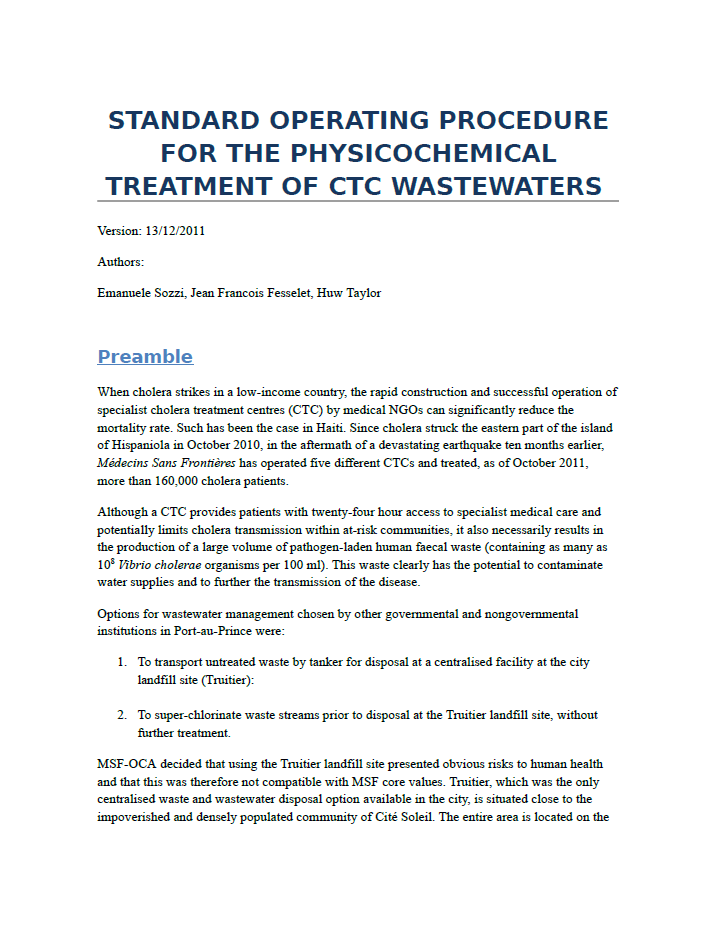Still have questions?
You could not find the information you were looking for? Please contact our helpdesk team of experts for direct and individual support.

Sanihub - search - Standard Operating Procedure for the Physicochemical Treatment of CTC Wastewaters
Author: Sozzi, E., Fesselet, J. F., Taylor, H.
Year: 2011
Publisher: Médecins Sans Frontières (MSF), France
When cholera strikes in a low-income country, the rapid construction and successful operation of specialist cholera treatment centres (CTC) by medical NGOs can significantly reduce the mortality rate. Such has been the case in Haiti. Since cholera struck the eastern part of the island of Hispaniola in October 2010, in the aftermath of a devastating earthquake ten months earlier, Médecins Sans Frontières has operated five different CTCs and treated, as of October 2011, more than 160,000 cholera patients.
The primary objective of treating CTC wastewaters must always be a significant reduction in the number of the cholera pathogen (Vibrio cholerae) to levels that do not pose an additional transmission pathway for the disease in the local community. It should however be pointed out that effective wastewater treatment is one part of a multiple barrier approach to disease control (Curtis, 1996).
"*" indicates required fields
You could not find the information you were looking for? Please contact our helpdesk team of experts for direct and individual support.


This website uses cookies so that we can provide you with the best user experience possible. Cookie information is stored in your browser and performs functions such as recognising you when you return to our website and helping our team to understand which sections of the website you find most interesting and useful.
Strictly Necessary Cookie should be enabled at all times so that we can save your preferences for cookie settings.
If you disable this cookie, we will not be able to save your preferences. This means that every time you visit this website you will need to enable or disable cookies again.
This website uses Google Tag Manager to collect anonymous information such as the number of visitors to the site, and the most popular pages.
Keeping this cookie enabled helps us to improve our website.
Please enable Strictly Necessary Cookies first so that we can save your preferences!
More information about our Cookie Policy
